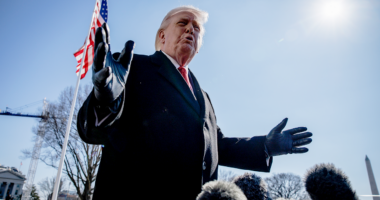Share this @internewscast.com
July 18, 2025 | National File CryptoDesk
“`
In a historic development that could reshape the future of digital finance in the United States, the U.S. House of Representatives has approved three comprehensive cryptocurrency bills. This legislative package, known as the “Crypto Clarity Bundle,” seeks to provide clearer regulatory frameworks for stablecoins, digital asset classification, and delineate the oversight roles between major financial agencies.
Historic Bipartisan Support
Exhibiting a rare bipartisan effort, the bills received substantial support from both Republicans and Democrats. Lawmakers highlighted the pressing need for establishing thorough regulations for the rapidly advancing crypto industry. The package comprises the GENIUS Act, the CLARITY Act, and the Anti-CBDC Surveillance State Act.
Representative Patrick McHenry (R-NC), the Chair of the House Financial Services Committee, applauded the decision: “This signifies a pivotal moment. These bills provide the clarity that the crypto industry has been calling for, while ensuring consumer protection and safeguarding our financial system.”
GENIUS Act: Stablecoins Get the Green Light
The Giving Every Nation Immediate US-dollar Stability (GENIUS) Act creates a federal framework for the issuance of stablecoins by private firms. The bill establishes stringent licensing requirements and transparency mandates, while explicitly banning the issuance of central bank digital currencies (CBDCs) by the Federal Reserve.
Circle, Paxos, and other stablecoin issuers have applauded the bill as a breakthrough for innovation. “This bill affirms that dollar-backed digital currencies can thrive under responsible regulation,” said Circle CEO Jeremy Allaire.
CLARITY Act: Who Regulates What
The CLARITY Act addresses one of the most contentious issues in crypto regulation: whether a token is a security or a commodity. The bill establishes a digital asset classification framework that assigns most utility tokens and decentralized assets under the purview of the Commodity Futures Trading Commission (CFTC), while traditional securities remain under the Securities and Exchange Commission (SEC).
This act is expected to reduce legal uncertainty and deter regulatory overreach. Coinbase Chief Legal Officer Paul Grewal tweeted, “Finally, Congress is providing a pathway forward. The CLARITY Act can restore confidence in U.S. innovation.”
Anti-CBDC Surveillance State Act: Blocking Big Brother
The third bill, known as the Anti-CBDC Surveillance State Act, prohibits the Federal Reserve from issuing or managing a central bank digital currency. Backed by civil liberties advocates, the bill reflects growing concerns that a government-issued digital dollar could lead to financial surveillance and loss of privacy.
Former President Donald Trump had publicly endorsed this bill during a Truth Social post, stating, “Americans will never allow their money to be controlled and monitored by the state. We need free-market innovation, not digital tyranny.”
Market Reactions and Industry Buzz
The crypto market responded swiftly. Bitcoin jumped 4.6% to reach $121,000, while Ethereum surged past $3,200. U.S.-based exchanges like Coinbase and Kraken saw a rise in volume, and major stablecoins like USDC saw a spike in new issuance.
Crypto Twitter exploded with commentary. Influencer @TokenTitan posted, “Three bills. One day. History made. Welcome to the era of legit crypto in the U.S.”
Global Implications
The United States now becomes one of the few major economies to provide legal frameworks for stablecoins and digital assets. Industry analysts believe this could push other G7 nations to follow suit.
“The regulatory clarity provided by the U.S. will reverberate through Europe and Asia. America is signaling it’s ready to lead,” said Kristin Smith, Executive Director of the Blockchain Association.
Next Steps
The bills now move to the Senate, where crypto legislation has historically faced more resistance. However, with recent polling showing rising support for digital asset regulation among younger voters, pressure is mounting.
Senator Cynthia Lummis (R-WY), a known crypto advocate, tweeted her optimism: “The House has laid the groundwork. Now it’s our turn to build on it. Crypto clarity is within reach.”
As the bills progress, the Biden Administration has remained largely silent, although Treasury Secretary Janet Yellen has previously voiced concern about “regulatory fragmentation” and acknowledged the need for comprehensive reform.
Conclusion
The passage of these three landmark bills in the House signals a profound shift in how the United States views and engages with the world of cryptocurrency. For investors, developers, and innovators, this moment represents not just a regulatory milestone—but a cultural one.
Whether these bills become law or spark more debate, one thing is certain: crypto is now a formal part of U.S. economic strategy and political discourse.
Written by National File CryptoDesk | July 18, 2025
“`
















